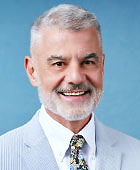Celebrating the “B” in “DEIBA”

National Black History Month is an opportunity for us to collectively celebrate and reflect on the essential role that Black and African Americans have played in the history of our nation. Mental health care and, in particular, the profession of psychiatry have benefited from the contributions of luminaries like Solomon Carter Fuller, M.D., Chester Pierce, M.D., Clotilde Bowen, M.D., Bebe Moore Campbell, and many others whose lives and work have raised awareness of mental health and have advanced our field. Without their contributions, psychiatry would be decades behind where we are now.
As we celebrate their legacy and accomplishments, we reflect on the fact that equity is not shared by all Americans today and that there is still a great deal of progress and growth to be made. By embracing the principles of Diversity, Equity, Inclusion, Belonging, and Anti-racism (DEIBA), psychiatry is strong and maximizes our impact on the mental health of our nation. APA is committed to fostering and growing diversity in the psychiatric workforce and investing in cultural competency for psychiatrists. For the past 50 years, through our SAMHSA Minority Fellowship Program, APA and the APA Foundation have not only contributed to workforce diversity but also developed educational and experiential opportunities to enhance cultural competency. Americans make up a broad tapestry of cultural heritage, and having a workforce that reflects that diversity—and can relate to it—is powerful. Importantly, culturally competent care makes patients feel that their concerns are being heard, understood, and taken to heart, and at the same time also results in well-documented positive health outcomes.
This is part of the reason that “belonging” was recently added as a core component of the DEIBA journey at APA. As psychiatrists, we know the healing effect of making a patient feel seen and heard. Patients who know that their psychiatrist is invested in their well-being is far more likely to keep up with their treatment and seek help if they need it. People who experience the authenticity of belonging trust us and work with us to achieve great medical outcomes.
Similarly, we make our trainees, medical students, and even undergraduate aspiring doctors from diverse racial and cultural backgrounds feel that there is a place for them in our profession and association. Even more importantly, we embrace the bidirectionality of cultural humility toward a true sense of belonging for all. The Future Leaders in Psychiatry Program (FLIPP), a new program introduced by APA’s Division of Diversity and Health Equity, is one example of the work that APA does to invite college students from different cultural backgrounds, expose them to the rewards and challenges of psychiatry, and provide them with mentorship from leaders in our field. Engaging with students at this early stage in their careers builds mentor/mentee relationships that last for years.
Our Association is stronger when all voices are heard at APA as well. APA’s minority/underrepresented caucuses are some of the most active and involved in the Association, and their exceptional work often translates into invaluable resources that we share with our patients, the public, and our partners in the House of Medicine. When members from different backgrounds truly “belong” in APA and come together to speak with one voice on behalf of psychiatry, people listen. ■



